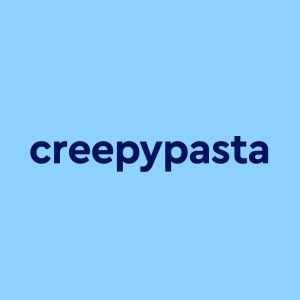Pop Culture dictionary
creepypasta
[ kree-pee pah-stuh ]
What does creepypasta mean?
Well, it’s not disturbing Italian food. Creepypasta is a genre of user-generated paranormal and scary stories distributed largely via internet forums. It is a subgenre of copypasta.
Where does creepypasta come from?

Before we define creepypasta, let’s first touch on the portmanteau copypasta. The term copypasta is believed to have been coined around 2006 by 4chan communities and describes stories that were copied and pasted through forums about miscellaneous topics—similar to the 1990s/early 2000s trend of sending chain emails.
Creepypasta, the most popular subgenre within the copypasta medium, generally refers to short horror stories about urban legends or unsettling fake local stories. They typically lack any disclaimers from the original author, which would help to clarify whether the post is fact or fiction, and often include familiar local details that further blur that line. Creepypastas are told using a variety of forms and styles, and due to the inherent community nature of internet forums, can even be interactive.
Hi… I’m… lulu..
Creepypasta character
Collects eyeballs
Cereal killer
Shy
Favorite color is blue
Vietnamese pic.twitter.com/FhxjiOPtrt— ~Lulu~ (sad no eyeballs) (@LulutheKAWAII) November 11, 2018
Original creepypastas involved mostly blocks of text or a picture with a caption (as with the original Slender Man mythos). While some creepypastas are told in the more removed, third-person style of an official government report, most creepypastas have a first-person narrator. Often users will privately collaborate on a story and build on the original post in comments, which can make the stories seem even scarier and more convincing for uninvolved readers who assume there are a bunch of strangers online who all know (and can corroborate) the same eerie tale.
Hello Peoples!!
🎮This is my second Draw Creepypasta!🎮
👾is a Ben Drowned!👾
well..Bye!! ^^ pic.twitter.com/R2qfcKcsgi
— ღ|TicciThay|ღ (@thay_proxy_13) November 6, 2018
As internet technology has improved in quality and become more easily accessible in the decade since creepypasta’s origins, the newer stories can include even more elaborate details and more convincing photo or video “evidence,” whereas older creepypastas were generally short and vague.
Examples of creepypasta
Who uses creepypasta?
Slender Man is arguably the best-known creepypasta, helping to launch the genre into public consciousness. It started online but eventually became so popular it received the cinematic treatment in 2018.
🚨https://t.co/ULT4jwjpSZ🚨BEWARE THE SLENDER MAN! BEWARE OUR LATEST EPISODE! We're jumping into #creepypasta and @SlenderManMovie. #PodernFamily #podcast #horror #suicideawareness #suicideprevention #newepisode @brandonpsmc
— Victims and Villains (@VctmsAndVillans) August 17, 2018
The genre has described as a contemporary form of expedited folklore, with stories passed virally through various internet communities in the span of days or weeks, rather than slowly over generations.
Alright, I'm in a creepypasta/spoop mood. Anyone got good podcast recs? Fictional, folklore and paranormal suggestions welcomed! 👻
— Jess☆ @Daishoprep (@hynoxolus) August 24, 2017
Using internet forums as the primary medium for telling and distributing the stories helps to make creepypasta somewhat interactive. By describing what the original poster personally experienced, overheard, or pieced together from anecdotes, the stories give readers the impression that they are part of the narrative themselves.
…Gets into Creepypasta, prepares to stay up all night…
— Rachael Perrotta 🏴 (@plussone) January 14, 2014
Both creepypastas and creepypasta are accepted as the plural form of this term.
Note
This is not meant to be a formal definition of creepypasta like most terms we define on Dictionary.com, but is rather an informal word summary that hopefully touches upon the key aspects of the meaning and usage of creepypasta that will help our users expand their word mastery.